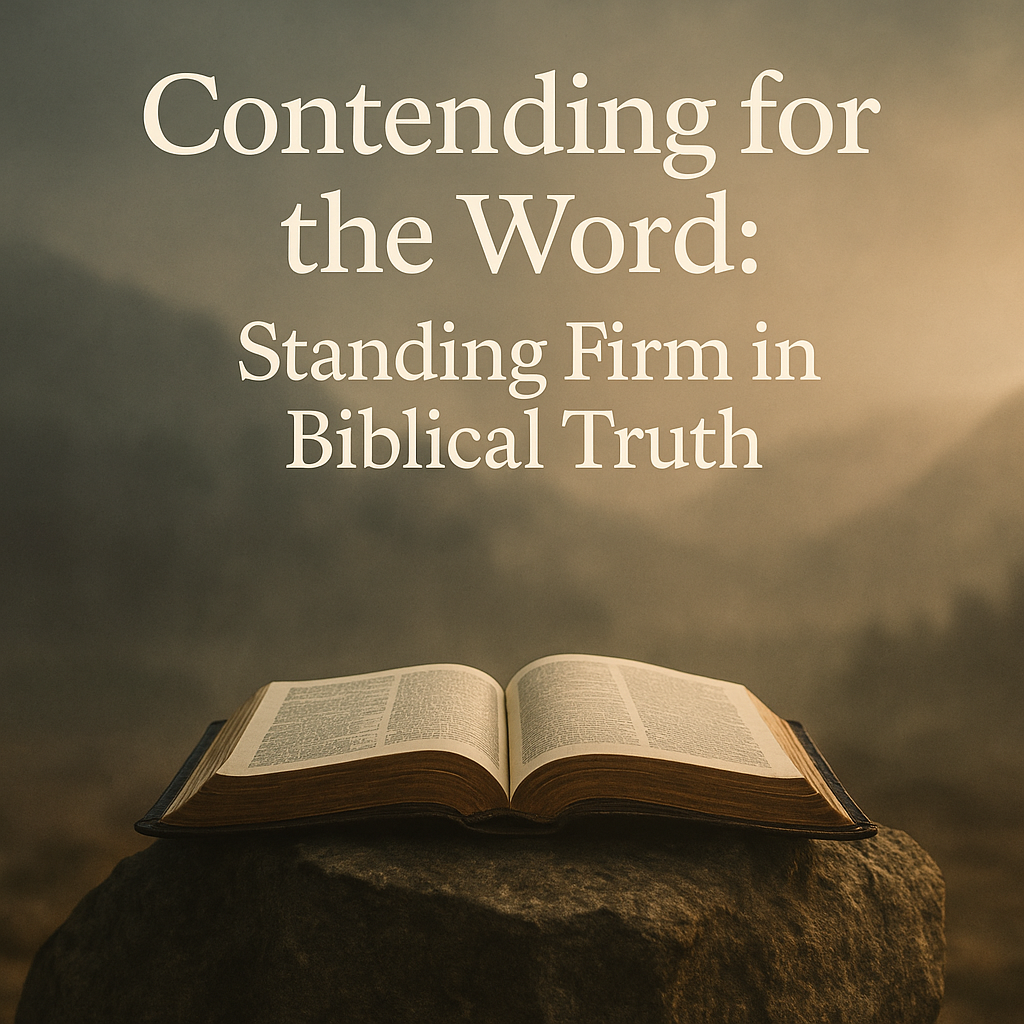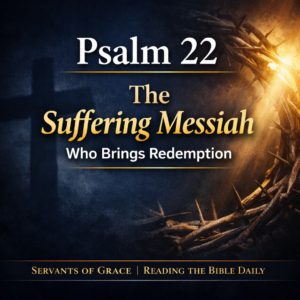⏱️ Estimated Reading Time: 6 min read
Standing Firm in Biblical Truth
by Dave Jenkins
📖 Scripture for Life Series
In a world flooded with opinions, half-truths, and spiritual noise, Christians must be more than reactive—we must be rooted. Contending for the Word isn’t about stirring up controversy. It’s about standing firm on the truth of God’s Word with courage, clarity, and conviction in the face of a culture that often prefers confusion over clarity.
Contending for the Word does not mean being combative or divisive. It means standing on and for Scripture with a heart posture shaped by truth and love. It means we’re searching the Scriptures, testing what we hear in our earbuds, what we scroll past on our screens, and what’s preached from our pulpits. This isn’t done from suspicion, but out of a deep desire to grow in Christ and to help others do the same. In that spirit, we contend—not to be loud, but to be faithful.
A Culture of Content Without Clarity
We live in a content-saturated world. Social media platforms like TikTok and Instagram serve bite-sized theological opinions to millions—many of which are more viral than biblical. A popular “Christian” influencer might share a 30-second clip claiming a new word from God or twisting Scripture to support a message of personal empowerment. These snippets are often packaged with charisma and aesthetic appeal, yet devoid of context, truth, or doctrinal integrity.
Everyone today claims spiritual insight—but not all claim biblical authority. And while modern technology has made biblical teaching more accessible, it has also made error more acceptable. This is why biblical discernment is not a call to suspicion or cynicism—it’s a call to anchoring. To be discerning is to be rooted in Scripture, able to test the winds of popular opinion against the firm foundation of God’s unchanging truth.
The Ancient Charge
Contending is not a modern reaction—it’s an ancient responsibility. Jude 3 gives every believer this call: “Contend for the faith that was once for all delivered to the saints.” This is not merely a suggestion for apologists or pastors—it is a charge for all Christians.
To contend well, we must first know what the faith is, where it’s found, and why it matters. We’re not defending vague spiritual feelings or cultural assumptions—we’re defending the revealed truth of God, passed down through Scripture. The gospel is not evolving, shifting, or adapting to modern tastes. It is fixed, finished, and sufficient.
Faithfulness Over Volume
This call to contend is not a license for spiritual aggression or prideful debate. Scripture never calls us to be combative—but it does call us to be watchful. A heart grounded in Scripture, shaped by the Word, and motivated by love will contend in a way that honors Christ. As Paul says in 2 Timothy 2:24–25, the Lord’s servant must “not be quarrelsome but kind to everyone,” able to teach, patiently enduring evil, and correcting opponents “with gentleness.”
We are not called to be loud. We are called to be faithful.
Biblical Illiteracy and the Cost of Confusion
Many believers today know Christian language but lack biblical understanding. There is a growing generation of professing Christians who can quote popular preachers and worship lyrics but struggle to locate key doctrines in Scripture. Hosea 4:6 echoes through history and into our moment: “My people are destroyed for lack of knowledge.” This is not a persecution problem—it’s a discipleship problem.
In this climate, faithful Christians must be vigilant in what we hear, watch, and promote. We must learn to test all things—not to tear down every teacher, but because we long to grow in Christ and help others do the same. Discernment isn’t about criticism—it’s about clarity.
A Legacy of Courageous Clarity
The church has always needed faithful voices who speak with conviction when the truth is under attack.
- Athanasius stood alone for the deity of Christ.
- Martin Luther stood before an empire and declared, “Here I stand, I can do no other.”
- Charles Spurgeon warned of theological compromise during the Downgrade Controversy.
- J.C. Ryle resisted peace when truth was at stake.
- John Calvin refused silence when Scripture was under attack.
They didn’t contend to gain attention. They contended to guard the truth. Their boldness was fueled by love for Christ and reverence for His Word.
Discernment in Every Sphere
Faithful contending will look different depending on our callings and responsibilities:
- Apologists: Start with Scripture before entering debates. Exalt Christ—not just expose error.
- Parents: Teach children to filter life with Scripture. “Where is that in the Bible?” should be a regular question at home.
- Pastors: Preach expositionally. Guard the pulpit. Shepherd the flock with humility, tears, and truth.
Discernment is not a spiritual specialty—it’s a Christian responsibility. Every believer, no matter their age or background, is called to grow in biblical clarity and help others do the same.
The Heart of It All: Christ
Ultimately, contending for the Word is not about clever arguments or online wins. It’s not about being the loudest voice—it’s about Christ.
Jesus Christ is the incarnate Word, full of grace and truth. He is the One we proclaim. He gives discernment through His Spirit and sanctifies His people through His Word. When we test all things, speak the truth in love, and equip others, we’re not just preserving doctrine—we’re reflecting the beauty of our Savior.
Christ is worthy. His gospel is sufficient. His Word is final. His glory is our aim.
Let us be rooted in Scripture, gentle in tone, bold in conviction, and rich in grace. Let us contend for the Word—not to win debates, but to exalt Christ. Not to chase controversy, but to uphold clarity. Not to puff up, but to build up the Church and point a confused world to the sufficiency of Christ.
Reflection Questions
- Am I contending for the Word—or just being critical?
- Do I test what I hear, read, and watch by Scripture?
- How can I grow in humility and faithfulness as I speak truth?
- Who around me needs to be equipped with biblical clarity?
- Am I pointing others more to Christ—or just to controversy?
Further Study
- Jude 3–4 – The call to contend
- Acts 17:11 – The noble Bereans
- 1 Thessalonians 5:21–22 – Test everything
- 2 Timothy 3:16–17 – The sufficiency of Scripture
- Ephesians 4:11–15 – Speaking the truth in love
Resources
- Check out the Scripture for Life series here at Servants of Grace.
- 🎧 Listen: Contending for the Word Podcast
- 📚 Read: The Word Matters by Dave Jenkins
👉 If this article helped you, share it with someone who needs to grow in biblical clarity. Use it in your small group, in pastoral training, or with your family. Start a conversation that leads to conviction—and Christlikeness.



